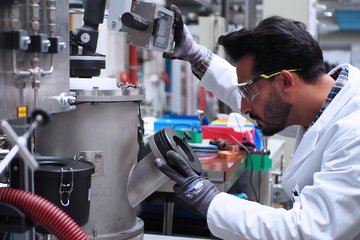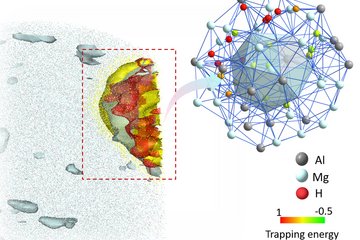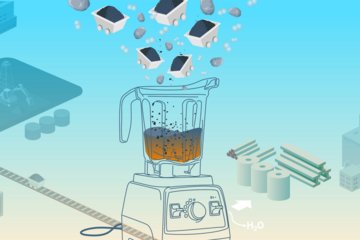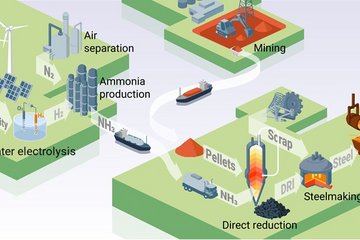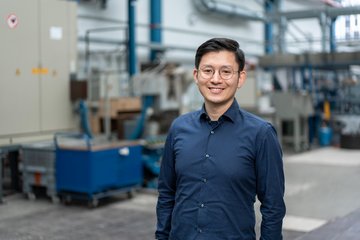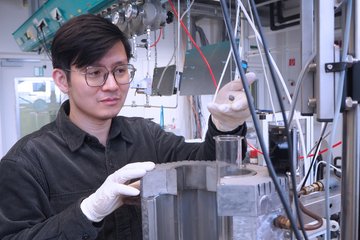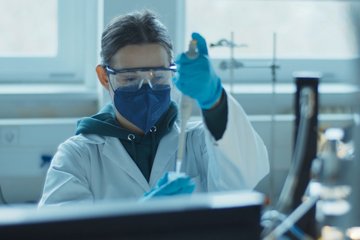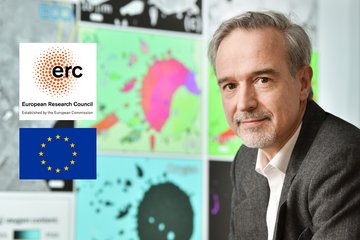Alle Typen
341.
Vortrag
Mobility of Water and Charge Carriers in Polymer/Oxide/Aluminium Alloy Interphases. M2i/DPI Project Meeting, Düsseldorf, Germany (2012)
342.
Vortrag
Investigation of the Interaction between H2 and trap sites in Duplex Steel by Scanning Kelvin Probe Force Microscopy. 63rd Annual Meeting of the International Society of Electrochemistry, Prague, Czech Republic (2012)
343.
Vortrag
High-sensitive and spatially resolved detection of diffusible hydrogen in steels by scanning kelvin probe microscopy. MPIE Workshop on Hydrogen Embrittlement in Steels, Düsseldorf, Germany (2012)
344.
Vortrag
Scanning Kelvin probe for hydrogen detection with high sensitivity and lateral resolution. Seminar talk, Leibniz – Institut für Analytische Wissenschaften - ISAS - e.V., Dortmund, Germany (2011)
345.
Vortrag
Inhibitor Filled Mesoporous Silica Embedded in Electro-Galvanized Zinc Coatings for Smart Corrosion Protection. 220th, ECS Meeting, Boston, MA, USA (2011)
346.
Vortrag
High-resolution detection of hydrogen: The hydrogen electrode in the dry. Kolloquium der GDCh, Greifswald, Germany (2011)
347.
Vortrag
Coatings for Corrosion Protection. 220th ECS Meeting, Boston, MA, USA (2011)
348.
Vortrag
Composite Coatings: Silica Particles with Metals by Electro-Deposition. 219th ECS Meeting, Montreal, QC, Canada (2011)
349.
Vortrag
Korrosionsschutz durch intelligente release-Systeme. 4. Korrosionsschutzsymposium, Rügen, Germany (2011)
350.
Vortrag
Controlling Electronic and Ionic Mobility in Coatings and at Interfaces: Novel Materials Concepts for Corrosion Protection. 219th ECS Meeting, Montreal, QC, Canada (2011)
351.
Vortrag
On the Role of Micro- and Nanostructure of Conducting Polymers in Composite Coatings for Intelligent Corrosion Protection. 219th ECS Meeting, Montreal, QC, Canada (2011)
352.
Vortrag
Mobility of Water and Charge Carriers in Polymer/Oxide/Aluminium Alloy Interphases. M2i/DPI Project Meeting, Eindhoven, The Netherlands (2011)
353.
Vortrag
Connecting Thermochemical Reactions and Diffusion - The Formation of Grain Boundary Oxides in Steel Sheets. 18th Conference on Computer Methods in Materials Technology, Zakopane, Poland (2011)
354.
Vortrag
Understanding of Hydrogen in Steel by Scanning Kelvin Probe measurements on evaporated Pd-Films. 7th International Conference on Diffusion in Solids and Liquids (DSL 2011), Algarve, Portugal (2011)
355.
Vortrag
A study on oxygen reduction inhibition at pyridine-terminated self assembled monolayer modified Au(111) electrodes. Workshop on Engineering of Functional Interfaces, Hasselt Univ, Campus Diepenbeek, Diepenbeek, Belgium (2011)
356.
Vortrag
High-resolution detection of hydrogen: The Hydrogen Electrode in the dry. XVIII SIBEEE, Bento Gonçalves – RS, Brazil (2011)
357.
Vortrag
High-Sensitive and locally resolved hydrogen detection in metals by Scanning Kelvin Probe Technique. 220th ECS Meeting, Boston, MA, USA (2011)
358.
Vortrag
Mobility of Water and Charge Carriers in Polymer/Oxide/Aluminium Alloy Interphases. M2i Conference 2010, Noordwijkerhout, The Netherlands (2010)
359.
Vortrag
Grain Boundary Oxidation Processes and High Temperature Corrosion. Division of Materials and Manufacturing Science, Osaka University, Osaka, Japan (2010)
360.
Vortrag
Surface analysis of functional surfaces: From lab scale to synchrotron applications. Leibniz – Institut für Analytische Wissenschaften - ISAS - e.V., Dortmund, Germany (2010)

